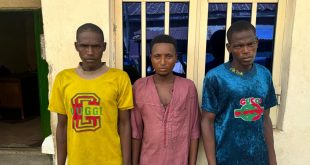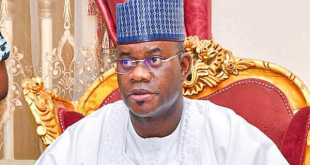Whenever Mo’Hits would visit Atlanta, Davido and his cousins B-Red and Shina Rambo would host them. At the time, B-Red also played drums in a Jazz band. In 2009, a 17-year-old Davido was so driven that he pitched himself to legendary Nigerian rapper, Modenine. At the time, the UK-born rapper was recording his critically acclaimed album, Da Vinci Mode.
Modenine was so impressed that he collected one of Davido’s beats, and aimed to feature MI Abaga on the resulting record.
Discussing the event in 2020, Modenine tells Pulse Nigeria that, “(Davido’s Uncle) then led me to where the Children were. As we were going, we passed the kitchen which was a building on its own (laughs). We went upstairs and the first person I saw was Shina Rambo who was and still is respectful towards me. The same thing with Davido – that’s why I respect myself around them.
“Davido then gave me a beat – which was a club kinda beat. When I got home, I sent it to MI Abaga. I felt it was going to be slightly hard for me to go on that beat, but I wanted to give this upcoming young guy called Davido an opportunity. I also kinda liked the beat. However, that track never came out – when my hard drive broke, I lost the track.”
But before Davido popped in the Nigerian music industry with his second single ‘Dami Duro,’ he grappled with acceptance from Nigerians who simply have an aversion towards rich people who try to play in the same pool with the masses. None of them knew about his hunger and drive from day one.
None of them also cared about the sight of Davido hustling for Modenine’s attention. But honestly, it didn’t help that his first single came with a line like, “Back when I was broke…”
Owning his affluent background
Nigerians are cynical towards the 1%. We feel like they gulp the little opportunities that poorer people strive for. While Davido never hid his background from the start, he also tried to make excuses for it. He would get on interviews and make a case for his hardwork over his background, but it just made Nigerians more cynical.
But by ‘Dami Duro,’ something seemed to snap in Davido. In the opening montage, he stunted on a waiter by overpaying only to intentionally spill the drinks that he supposedly paid for. He also looked disgusted at how the waiter pestered him and his crew for payment. When he paid and wasted the drink, the smile on Asa Asika’s face was telling.
He then seemed to fight back on that song, “E ma dami duro, emi omo baba olowo. Won fe dami duro, e wo won, won fe bami no wo…”
In English that means, “Don’t stop me. I’m the son of a rich man, stop trying to stop me. I know you want to spend money with me…”
It felt cocky, but it was the first time Davido was publicly/virally unapologetic about his affluent background. It was also like he finally accepted himself for who he was. From when that song dropped and he plastered his debut album with Omo Baba Olowo [The son of a rich man], the cynicism towards his success sort of slowed down.
Even when a one night stand leaked a photo of a Davido in deep sleep for clout, only a few conservative heads really put it down to his background. Others simply found it funny or placed it on the sexual irresponsibility of celebrity – not wealth. By the time he chatted with Toolz on The Juice in 2012, he looked more at home.
By the end of that year, he was named Next Rated artist at the Headies.
Outdoing his background
He continued to own his affluent background on songs, but it all switched on Reminisce’s Alaga Ibile in 2013. On ‘Daddy Mi,’ he declared his willingness to be richer than his dad. He brought the conversation from his dad to his wealth and became more boisterous and braggadocious.
On ‘Bad Baddo Baddest,’ he bragged about having two million in liquid funds. While he also bragged about jet setting in his dad’s new plane on the same song, the line that really stuck was, “I get like two million dollars for my account no be asset…”
He then bragged about having “30 Billion in his account” on ‘IF.’ These days, Davido is more spoken about than his dad and so is his wealth. He’s like what Nas rapped about on ‘Reach Out.’
The Queens rapper said, “When I was young they called me Olu’s son/Now he’s Nas’ father, I was the good seed.”
Outside his comfort zone: South-East, Africa and the world
Before Davido’s love-filled era of 2017/2018 and his family-oriented brand of 2019/2020, his music was significantly defined by an appetite to make money, be successful or be ‘a man.’ In 2015 alone, he released money-oriented ‘Owo Ni Koko’ and ‘The Money.’ But it was also around this time that Davido’s strategic moves started popping out.
First off, he took on South-Eastern Nigeria with collaborations like ‘Nek Unek’ with MC Galaxy, ‘Gallardo’ with Runtown, ‘Okpekete’ and ‘Ogaranya’ with KCee as well as ‘Osinachi (Remix)’ with Humblesmith. At different times, those records spread the Davido evangelism.
After that was done, he journeyed across Africa with strategic collaborations.
First off, he gave Diamond Platnumz’s ‘Number One’ an identity outside East Africa while he introduced himself to that market. Like the strategy that linked “Jozi to Lagos” on ‘Rands and Nairas,’ Davido strategically mentioned “Tanzania to Lagos” and linked Ololo with Skelewu.
At the 2014 MTV Africa Music Awards where Davido was named artist of the ear, their performance stole the show. Davido then made ‘Tchelete’ with rave of that moment, Mafikizolo and ‘The Sound’ with Uhuru. Davido also made sure that he mentioned something as resonant as Kalawa Jazmee, the legendary Oskido-owned record label on the later track.
From there, his social currency exploded as Yemi Alade began to solidify her Mama Africa brand, as Wizkid pummeled Ghana and South Africa and as Burna Boy was basically South African for a moment in 2013. In 2014, Davido was also named Best International Act at the BET Awards. He celebrated by ushering his fellow nominees onto the stage.
By 2016, Davido then made ‘Coolest Kid In Africa’ with Nasty C, just as he was about to take his market beyond Africa, into Europe and the Americas.
With Michael Ugwu at the helm of Sony Music West Africa, Davido and Wizkid both signed Sony Music deals. Immediately, Davido got to work with ‘Fans Mi’ featuring Meek Mill, ‘How Long’ featuring Tinashe and ‘Pere’ with Young Thug and Rae Sremmurd. Some of those songs also appeared on Son of Mercy, the EP he admitted to “hating.”
After an ill-fated reception, Davido reportedly bought himself out of that deal and returned to Nigeria hungry.
2017: Davido’s year
Upon getting a call from Tekno, he made ‘IF’ with Tekno and it became a viral sensation. The run then continued with ‘Fall,’ ‘FIA’ and the slept-on ‘Like Dat.’ It was a period of transition for Burna Boy and like Davido, Wizkid was reeling from an ill-fated sojourn in the west while ruminating over Made In Lagos.
In their absence, Olamide waxed stronger while Tekno, Runtown, Phyno and Kizz Daniel ran riot. Davido battled to establish his own brand, sign Mayorkun and reestablish himself.
In 2019, Pulse Senior Editor, Steve Dede argued that Davido’s need to prove himself contributed to that successful run. He says, “Davido thrives when he feels like he needs to prove something – all champions need that. Davido’s inspiration is his perpetual need to remain an underdog. He loves that element of surprise.”
And surprise everyone he did. By 2018, ‘Fall’ began to do rounds in the US and has since gone on to become Davido’s biggest record yet – by numbers. Davido has since collaborated with numerous international acts like Nicki Minaj, Russ, Nas, Drake and more. This run also directly leads Davido into a growing streaming reality.
Streaming strategy: Resonant quotables and hits formulae
In each of those aforementioned moments, another Davido strength was also unearthed – his ability to implant timeless quotables into the minds of his listeners. For the most part, this tendency also underlines why Hip-Hop struggles to truly resonate in Nigeria – the pop stars own the quotables.
It’s like his version of quotables and social media bars in Hip-Hop. Lines like “30 Billion for the account,” “Shuku shaker, aya shoe maker,” “You for dey for me” and “Tell Odogwu say we like to party” are just too resonant not to stick. As a recurrent theme throughout Davido’s career, it seems too intentional to be random.
In this streaming era, you capture numbers by maximizing a listener’s attention span. Davido does that with a combination of astute marketing tactics, great features and resonant lines/hooks. What Davido’s music can’t do, marketing will do it. If marketing fails, then a resonant line will stick. Just look at ‘FEM.’
This marks the end of this part.
 Top Naija News: Nigerian News, Breaking News Nigeria and World News Top Naija News is a daily news publication in Nigeria, delivering the latest breaking news in Nigeria and around the world.
Top Naija News: Nigerian News, Breaking News Nigeria and World News Top Naija News is a daily news publication in Nigeria, delivering the latest breaking news in Nigeria and around the world.



